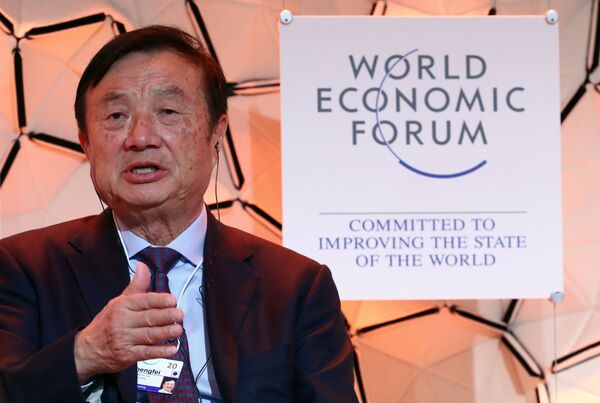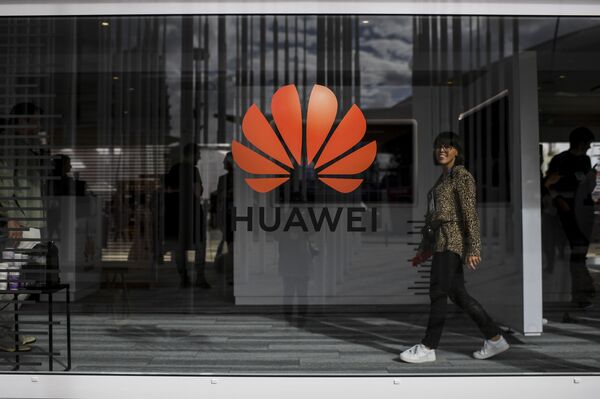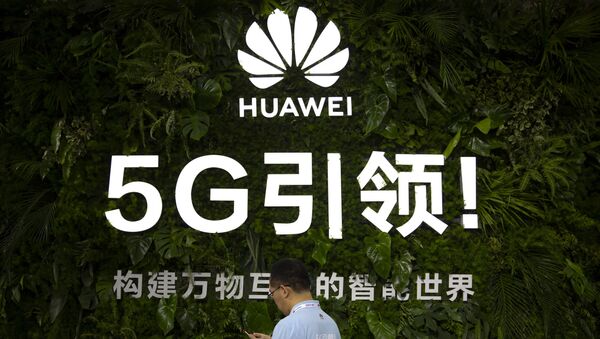At the same time, Chinese equipment will not be allowed into the network's core. London's decision may affect the EU's position on this issue.
The Trump administration has already expressed their disappointment with Boris Johnson's decision. The United States has repeatedly called on all its allies to completely eliminate Chinese companies' equipment from their 5G telecommunication networks, including that of Huawei. Otherwise, the US threatened to cease the exchange of sensitive intelligence with its partners, because, as Washington insists, Huawei is closely aligned with the Chinese government and could be engaged in espionage. Huawei categorically denies the allegations, offering to conduct an independent examination into the safety of its products.
It was very important for the United States to convince the UK to abandon Huawei. Firstly, it is one of Washington's Five Eyes intelligence partners, along with Canada, Australia and New Zealand. Secondly, the UK is the most crucial player in the European telecommunications market. It is only logical for other countries to follow Britain's example. In addition, the UK is a strategic market for Huawei. The company arrived in the UK 15 years ago, and today Huawei has 1,600 employees in the United Kingdom. In general, the European market is the largest for the company outside the PRC.
It was under Theresa May's government that the UK thought about how to collaborate with Huawei to construct 5G networks in London. The decision wasn't easy to make; it was postponed several times. The United States was continually putting pressure on London. Even now, literally on the eve of the National Security Council meeting, a delegation headed by US Deputy National Security Advisor Matthew Pottinger arrived in Great Britain. The Americans have questioned British intelligence's assessment that it is feasible to incorporate Huawei into their 5G infrastructure without risking national security, and have tried to influence Boris Johnson's decision up until the last minute. However, this time, the UK didn't follow the Americans.

London has, however, decided to act to prevent Chinese suppliers' equipment from becoming part of the core of the network. For example, excluding Chinese equipment where data storage servers are located, and traffic is routed. On the other hand, the UK didn't consider it dangerous to use Chinese equipment in radio access networks, which include antennas and base stations. Also, to maintain healthy competition and exclude dependence on just one supplier, the United Kingdom has set a 35% limit on the share of one manufacturer in their radio access networks' infrastructure. Moreover, Chinese equipment will be banned from being installed near strategically important facilities: military bases, nuclear facilities, etc.
Generally, Huawei welcomes the UK's decision. According to Huawei Vice President Victor Zhang, this would give the UK access to leading technologies and provide a competitive market.
"Huawei is reassured by the UK government's confirmation that we can continue working with our customers to keep the 5G roll-out on track. This evidence-based decision will result in a more advanced, more secure and more cost-effective telecom infrastructure that is fit for the future. It will give the UK access to leading global technology and ensure a competitive market. We have supplied cutting-edge technology to UK telecom operators for more than 15 years. We will maintain this cooperation, supporting our customers in 5G networks development, boosting economic growth and helping the UK continue to compete globally. We are convinced that a diverse vendor market and fair competition are essential to the reliability and development of communications, as well as ensuring that consumers have access to the best possible technology," he said.

The United States insists that in 5G networks the boundary between the network core and the radio access networks is vague since the technological architecture of new networks is such that the core is not a hardware complex, as was the case with 4G, but mainly a software complex. Data is stored on the cloud, and calculations are made near base stations to minimize delays and increase data transfer rates. Therefore, according to the US, the British approach supposedly cannot guarantee protection against sensitive data breaches. However, British Minister of Digital Technology, Culture, Media and Sports, Nicky Morgan said that this is a UK-specific solution, due solely to UK-specific reasons, and related to the specific problems facing the country. The first phase of 5G networks won’t be created from scratch but will be built on the existing 4G infrastructure. Meanwhile, the share of Huawei equipment in this infrastructure is about 45%. Abandoning Huawei would mean the need for a complete restructuring of all existing telecommunication networks, which would entail enormous material costs, and, according to various estimates, a delay in implementing fifth-generation communication technologies by five to seven years.
There’s a similar situation in several European countries. Germany hasn’t made a final decision on Huawei yet, but, despite opposition from the German intelligence services, Chancellor Angela Merkel is opposed to altogether banning Chinese equipment. Canada, another member of the Five Eyes alliance, also doesn’t have a well-defined position. The Canadian Security Intelligence Service (CSIS) insists on banning Huawei equipment, while the Communications Security Establishment (CSE) is against this, believing that the risks can be managed. Some European countries, such as Italy, even said that they didn’t intend to abandon Huawei, and would proceed solely from their own telecommunication strategies interests. Currently, apart from the United States, only Australia has officially abandoned Huawei equipment. As noted by the British media, it is now difficult to imagine the telecommunications world without Chinese equipment. Over the past two decades, Western countries haven’t defended or adequately supported their own telecommunications industry, while China has thought strategically. And now, no European manufacturer can offer a full range of telecommunication solutions and services.




